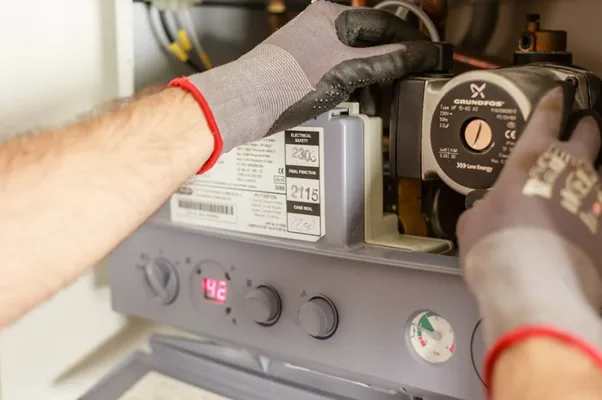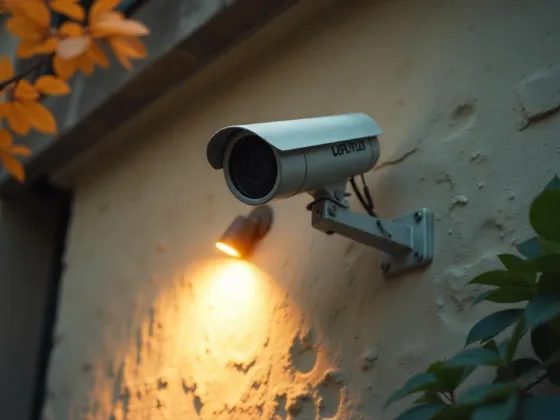Table of Contents Show
A boiler is an essential component of any home heating system, providing warmth and comfort during the colder months.
However, like any appliance, boilers can experience issues that may disrupt their performance. In this post, we’ll explore common boiler problems, their causes, and potential solutions.

12 Common Boiler Problems You Shouldn’t Ignore
Here are some of the most frequent issues you may encounter with your boiler:
1. No Heat or Hot Water
A common issue many people face with their boilers is the lack of heat or hot water in their homes. This problem can arise from several different causes, each requiring attention.
- One major factor could be thermostat issues. The thermostat is the device responsible for regulating the temperature in your home. If it is set incorrectly, or if it is not working at all, it can lead to the boiler not producing any heat or hot water.
- Another possibility is pressure problems. If the water pressure in the system is too low, it can hinder the boiler’s ability to operate effectively. This low pressure may result from leaks, malfunctioning parts, or even a lack of water in the system, which can prevent your boiler from heating water as it should.
- Additionally, faulty valves can be a significant contributor to heating problems. Specifically, the diverter valve controls the flow of water in the system and if it is not functioning correctly, it can disrupt the heating process.
When you do not have heat or hot water, a simple first step to consider is resetting the boiler. This action can sometimes clear minor glitches and restore function. For those with a Worcester Bosch boiler, there are specific resetting steps to follow, which can be found in the expert guide provided by Eco Happy.
2. Boiler Leaks
Boiler leaks are a common issue that many homeowners may face. These leaks can happen for several reasons, such as worn-out seals, loose fittings, or even corrosion developing over time. If you happen to notice water collecting around your boiler, it is crucial to respond to this situation promptly. Ignoring leaks can lead to more significant damage, which can be costly and inconvenient.
To keep your boiler running smoothly, regular maintenance checks are key. These checks help spot potential leaks early on before they turn into bigger problems. This means you can catch issues while they’re still small, saving you time and money in the long run. Taking the time to keep an eye on your boiler can make a big difference in its performance and longevity.
3. Strange Noises
Unusual sounds coming from your boiler can be a cause for concern. When you hear strange noises like banging, whistling, or gurgling, it often points to specific problems that need attention.
- One common issue is something called kettling. This happens when limescale builds up inside the boiler. When this limescale accumulates, it can trap water and cause it to boil. As the water heats up, it creates steam bubbles that can lead to loud banging or knocking sounds.
- Another possible issue is air in the system. If there is air trapped in the radiators, it can cause a range of noises. This air can create gurgling sounds and also make the heating system less efficient, meaning it won’t work as well as it should.
- A faulty pump is another reason for these strange noises. When the pump that circulates the water in your heating system isn’t working properly, it might produce a loud humming noise. This humming can be quite bothersome and might indicate that the pump needs to be checked or replaced.
If you notice any of these strange sounds coming from your boiler, it’s important to get a professional opinion. They can diagnose what’s wrong and help you find the right solution to get your heating system back to normal.
4. Fault Codes
Fault codes are key features found in modern boilers that play an essential role in identifying and diagnosing problems. These codes are unique identifiers that correspond to specific issues that may arise within the boiler’s operation. When a boiler encounters a problem, it generates a fault code that can be read through its display or control panel.
For example, in the case of Worcester Bosch boilers, the system uses a series of codes to alert you to various issues such as low water pressure or overheating. Each of these fault codes is designed to provide clear and direct information about what might be wrong, making it easier for users to understand the situation.
Recognizing and understanding these codes is crucial, as it can lead to faster repairs and solutions, reducing the likelihood of more serious problems developing in the future.
By paying attention to these fault codes, homeowners can ensure their boilers run smoothly and efficiently, ultimately prolonging the life of the unit and ensuring it remains reliable for their heating needs.
5. Increased Energy Bills
One common sign that your boiler might not be working as well as it should is when you see a sudden increase in your energy bills. If you’ve been keeping an eye on your monthly costs and notice that they’re climbing higher than usual, it could mean your boiler is starting to lose its efficiency.
When a boiler isn’t functioning properly, it has to work harder to heat your home. This extra effort means it uses more fuel than normal. As a result, you end up paying more for your energy, which can add a noticeable amount to your monthly expenses.
Paying more for energy isn’t something most people want. This is where the importance of regular servicing and maintenance comes in. By keeping your boiler in good shape, you can help it run more smoothly and use less fuel, which can lower those energy bills.
Maintaining your boiler not only helps it heat your home effectively but also saves you money over time. Keeping an eye on your boiler’s performance is a smart way to ensure you’re not wasting money on higher utility costs.
6. Foul Smells
When you notice a strange gas or burning smell coming from your boiler, it’s essential to pay close attention. Such odors can indicate a gas leak, which is not just concerning but can also pose serious risks to your safety and health. It’s vital to act right away if you find yourself in this situation.
First, you should turn off your gas supply immediately to prevent any further issues. Next, make sure to evacuate everyone in the building to a safe location. It’s important not to ignore these signs, as they can lead to harmful situations.
Once you are sure everyone is safe, reach out to a qualified technician who has the training and expertise to inspect your boiler properly. They will be able to determine the source of the smell and address any problems to ensure that your heating system is safe and functioning correctly.
Taking these steps seriously can help protect you and your home from potential hazards.
7. Boiler Cycling
Boiler cycling is the process where a boiler turns on and off repeatedly in a short period. This can happen for several reasons.
- One common cause is a faulty thermostat. The thermostat is the device that helps control the temperature in a building, and if it is not working properly, it can send incorrect signals to the boiler.
- Another reason for this issue may be that the boiler is too large for the space it heats. When a boiler is oversized, it heats the area quickly, causing it to shut off and then turn back on again as the temperature drops.
- Additionally, problems with the water supply can also lead to cycling. If there isn’t enough water or if it’s not circulating correctly, the boiler may turn off to protect itself from overheating, then turn it back on once it cools down.
Frequent cycling can be more than just a nuisance; it can cause significant stress on the boiler. This constant starting and stopping can wear out its components faster than usual.
Over time, this wear and tear can lead to more serious problems, requiring expensive repairs or even replacement of the boiler. Therefore, understanding the causes of boiler cycling and addressing them is necessary to ensure the boiler runs efficiently and lasts longer.
8. Pressure Problems
Boiler pressure is an important part of how your heating system works. If the pressure in your boiler is not at the right level, whether it’s too high or too low, it can cause several problems. These issues might include leaks that can damage your home or even overheating, which can be dangerous.
To keep your boiler working properly, it’s essential to check the pressure gauge regularly. This gauge shows you the current pressure level in the boiler. If you notice the pressure is not where it should be, you can adjust it according to the guidelines provided by the manufacturer.
Keeping an eye on this can help you avoid costly repairs or safety hazards down the line. Regular maintenance of your boiler’s pressure ensures that it runs smoothly and efficiently, providing consistent heat when you need it most.
9. Frozen Condensate Pipe
In colder weather, one common problem that can arise with your heating system is the freezing of the condensate pipe. This pipe is responsible for transporting wastewater produced by your boiler as it operates.
When temperatures drop significantly, the water in this pipe can freeze, leading to a blockage. If this freezing occurs, it can cause your boiler to shut down as a safety measure to avoid any potential damage to the system.
If you find yourself facing this issue, there are steps you can take to fix it. Start by gently thawing the frozen condensate pipe. A good way to do this is by using warm water or a heating pad. It’s important to be cautious and avoid using boiling water, as the extreme heat could end up causing more harm than good to the pipe.
By carefully warming the pipe, you can help restore the flow of wastewater and get your boiler back up and running smoothly.
10. Thermostat Malfunctions
Thermostats are essential devices in your home that help keep your boiler running smoothly. They are responsible for sensing the temperature inside your house and sending signals to the boiler to heat the water when it’s too cold or to stop heating when the desired temperature is reached.
However, when a thermostat is not working correctly, it can create a range of issues. For instance, if the thermostat is malfunctioning, it might not give an accurate reading of the temperature in your home.
As a result, the boiler may either overheat the water or fail to heat it enough, leading to an uncomfortable living environment. This situation can make your home too hot or too cold, which can be very annoying. Moreover, when the boiler works inefficiently, it tends to consume more energy than necessary.
This not only affects your comfort levels but can also lead to higher energy bills. Thus, keeping an eye on your thermostat’s performance is important to ensure your home remains a comfortable place to live while also being energy-efficient.
11. Corroded Pipes and Radiators
As time goes by, pipes and radiators in your home can start to show signs of corrosion. This is a gradual process where rust or other forms of deterioration can develop on the metal surfaces. When corrosion occurs, it isn’t just an aesthetic issue; it can lead to leaks in the system. These leaks can waste water and cause damage to other parts of the house.
Additionally, corrosion can lower the efficiency of your heating system. This means your home may not get as warm as it should, causing you to use more energy and spend more money on heating.
To prevent these problems, it is important to keep an eye on your heating system. Regular inspections can help you spot early signs of corrosion, such as discoloration or flaking on pipes and radiators.
By being proactive and addressing these issues early, you can avoid more serious complications in the future. Regular maintenance not only helps maintain efficiency but also extends the life of your heating system.
12. Boiler Lockout
Boiler lockout occurs when a boiler detects a problem and shuts down to prevent further issues. This means the boiler will not work until the problem is fixed. There are several reasons why a boiler might go into lockout mode.
One common cause is low water pressure, which can happen if there is a leak in the system or if water levels are not maintained properly. Another reason could be overheating, which can occur if the boiler is working too hard or if there are blockages that prevent it from cooling down.
Electrical faults may also lead to a lockout situation, meaning there is a problem with the electrical components that control the boiler’s operation.
If your boiler has entered this lockout mode, it is essential to refer to the manufacturer’s manual for guidance. The manual typically includes specific steps on how to reset the boiler safely and effectively, allowing you to restore its function.
Conclusion
In conclusion, having a good grasp of the typical issues that can arise with your boiler is essential for keeping your heating system running smoothly. Knowing these common problems allows you to take steps to prevent them from happening in the first place.
Regularly servicing your boiler and keeping an eye on its performance can help you spot any potential issues before they become serious. Taking these proactive measures not only reduces the chances of unexpected breakdowns but also helps maintain a warm and cozy atmosphere in your home.
This way, you can enjoy a comfortable living space without worrying about whether your heating system will let you down when you need it most. By staying informed and attentive, you can ensure that your boiler stays in good condition, providing the reliable heat you want all year round.
FAQ:
If your boiler has no heat or hot water, first check the thermostat settings to ensure they are correct. Low water pressure could also be a factor, so check the pressure gauge. Additionally, inspect the diverter valve for any faults. Sometimes, resetting the boiler can resolve the issue. If problems persist, consult a professional for further assistance.
You can identify a leak in your boiler by looking for water pooling around the unit or damp patches on the floor. Regular maintenance checks can help spot potential leaks early. If you notice any signs of leakage, it’s essential to address it promptly to prevent further damage.
Strange noises such as banging, whistling, or gurgling can indicate issues like kettling (due to limescale buildup), air trapped in the system, or a malfunctioning pump. While some noises may be normal, persistent or unusual sounds should be evaluated by a professional to diagnose and resolve the problem.
A sudden increase in energy bills may indicate that your boiler is becoming less efficient and using more fuel to heat your home. Regular servicing and maintenance can help keep your boiler running efficiently, potentially saving you money on utility costs in the long run.
A boiler enters lockout mode when it detects a fault, preventing it from operating until the issue is resolved. Common causes include low water pressure, overheating, or electrical faults. Refer to your manufacturer’s manual for specific instructions on how to reset your boiler from lockout mode.










